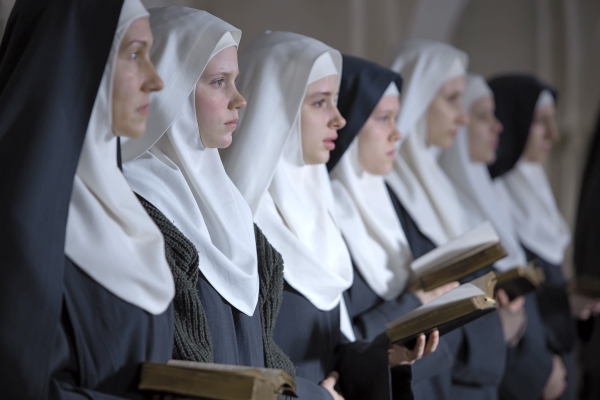Poland, nuns and winter are a surefire mix of ingredients for an excellent film, if recent experience is any guide.
A couple of years ago, Ida proved a big hit with its story of a novice and her secular judge auntie in postwar communist Poland.
The Innocents (Rialto) is set a little earlier, at the end of World War II, when the Russian army occupies what the Nazis left of Poland.
The winter setting dominates the bleak but luminous visuals of both films, which also share a number of other physical and philosophical characteristics. Not least of these is Agata Kulesza, who played the disillusioned judge in Ida and plays the Reverend Mother in The Innocents, which is also known as Agnus Dei and by its French title, Les Innocentes (a number of other films go by this title).
Inspired by actual events, it opens in a Benedictine convent with a novice slipping away and crossing the snowy countryside to seek help.
She heads for a French Red Cross medical centre and persuades a female doctor (Lou de Laâge) to break both the rules of her posting and those of the convent.
It doesn’t reveal too much of the plot to say the nuns needing medical treatment have been brutalised by Soviet soldiers several months earlier and the convent sees no need for outside help.
Eventually, the secrecy of the doctor’s visits — and her absence from her medical post — is removed when four of the nuns require immediate treatment.
The doctor calls in a male colleague (Vincent Macaigne), forcing the abbess into a moral dilemma from which she can’t escape. She puts her own soul in peril while believing she is performing God’s will.
This isn’t the only clash of faith, belief and reality. The doctors are largely atheistic and want to save lives. The nuns are committed to their vows at the risk of their own lives, even though they have been indecently violated.
These themes are not unfamiliar from the sacrifices in Martin Scorsese’s Silence, set in Japan, or the plight of the French monks in Of Gods and Men (2010), set in Algeria.
The difference is that these issues of faith and doubt are mainly viewed from a female perspective, with the nuns counterpointed by an idealistic communist doctor.
One pragmatic sister (Agata Buzek) tries hard to bridge the gap and the stakes are raised by the male doctor, who invokes the shadow of the Holocaust with his contempt for the Poles: “They got what they deserved. The only Polish people I cared about were in the Warsaw ghetto. They’re all gone.”
Meanwhile, French writer-director Anne Fontaine (Coco Before Chanel) creates some memorable dialogues.
“I can no longer reconcile my faith with these terrible events,” one sister confesses to another. “God, of whom I still consider myself the divine bride, nonetheless wanted this. . . . If it happened, that means he wanted it.”
The other replies: “We cannot know what God wants” to happen, she says, “the only truth is his love”.
Rating: Mature audiences. 110 minutes

Reader Interactions